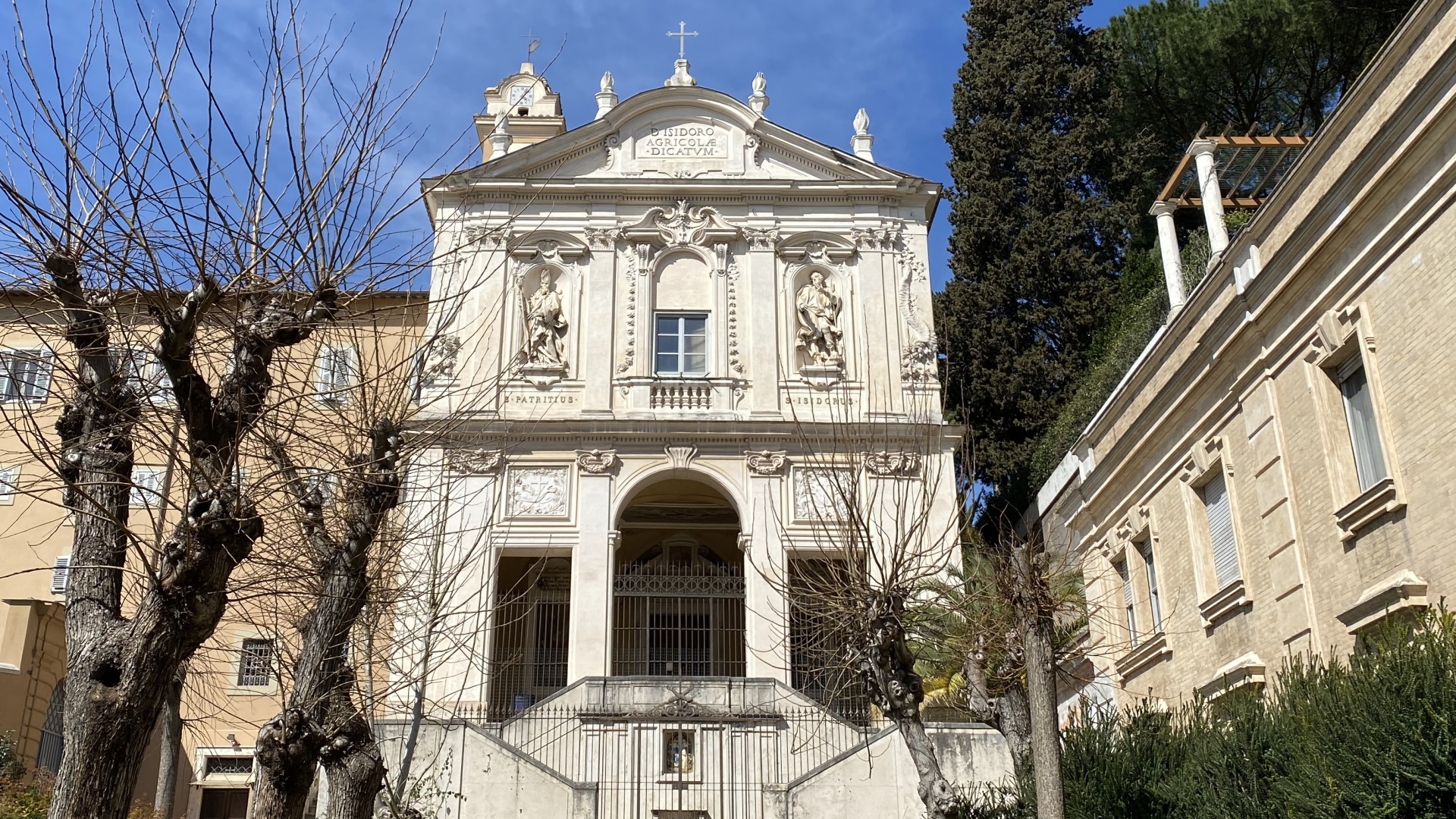
In a little-known corner of Rome, a few steps from Via Veneto, the church was founded in 1622, the same year that St. Isidore – the Spanish farmer saint protector of fields and crops – was canonized: a group of Spanish discalced Franciscans bought an uncultivated land and asked architect Antonio Felice Casoni to build a center for their community. Two years later, the unfinished church and convent were handed over to the friar and theologian Luke Wadding and to Irish Franciscans, who had fled Ireland due to English persecution. Since then St. Isidore’s has never passed out of Irish hands, except for two short periods during the Napoleonic occupation, when the monastery was forcibly closed for a time and its buildings were taken over by a group of German artists, known as the Nazarenes because of for their biblical lifestyle, beards and hair. It is precisely for this reason that the street on which the complex overlooks is called Via degli Artisti.
Accessed by a pair of double transverse staircases, the beautiful Rococo façade has two niches housing the statues of St Isidore and St Patrick, patron saint of the Irish. The church has a single nave with a barrel-vaulted ceiling, frescoed in the first half of the 18th century by Charles-André Van Loo. Together with the frescoes and paintings by Carlo Maratta, author of the scenes from the life of St. Joseph and the refined altarpiece of the Immaculate Conception, the masterpieces of the church include the tiny, but spectacular Cappella de Sylva. It was commissioned by the Portuguese Rodrigo Lopez de Sylva to Gian Lorenzo Bernini, who, however, only took care of its design, leaving the execution to his co-workers. In the second half of the 19th century, the two bare-breasted Virtues that adorn the left wall were judged too provocative by the Franciscans, who gave the two of them tops in bronze to wear, removed during the 2002 restoration.
Adjacent to the church are the tiny Spanish Cloister built for the original Spanish friars by Antonio Casoni in 1622 and covered in 1948, and a second larger cloister, commissioned by Luke Wadding and built ten years after the Spanish one. The two fresco cycles in the Ward Cloister's walks are by Fra Giovanni Antonio Sguary from Padua, a Franciscan artist, 1701. Luke Ward did much for the Irish cause in Rome, and it was mainly due to his insistence that the Feast of St Patrick was included in the Church’s universal liturgical calendar.
Photo: Redazione Turismo Roma
Information
For the timetable of the masses and visiting conditions, please consult the contacts.
 Condividi
Condividi
Location
To find out about all accessibility services, visit the Rome accessible section.











































